Publications
Articles, publications, books, tools and multimedia features from the U.S. Institute of Peace provide the latest news, analysis, research findings, practitioner guides and reports, all related to the conflict zones and issues that are at the center of the Institute’s work to prevent and reduce violent conflict.
Question And Answer
Blinken’s China Trip Shows Both Sides Want to Stabilize Ties
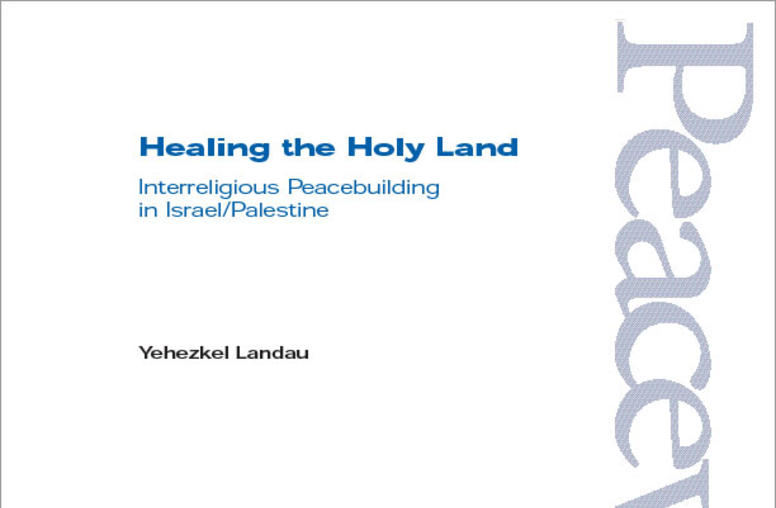
Healing the Holy Land: Interreligious Peacebuilding in Israel/Palestine
This publication documents faith-based efforts by Muslim, Jewish, and Christians to achieve a just peace in the Arab/Israeli conflict. The publication argues forcefully that religious leaders and interests must be engaged in the peace process in order to assure a sustainable, inclusive, and comprehensive settlement. The report includes the perspectives of clergy, lay, facilitators of inter-faith dialogue, religious educators, and participants in the historic Alexandria Summit in January 2002,...
Prospect for Peace in Ivory Coast
On February 12, 2003, Timothy Docking, Africa specialist and program officer in the Institute's Research and Studies Program explored some of the complicated issues surrounding the ongoing conflict in the Ivory Coast during testimony before the Africa Subcommittee of the House Committee on International Relations.
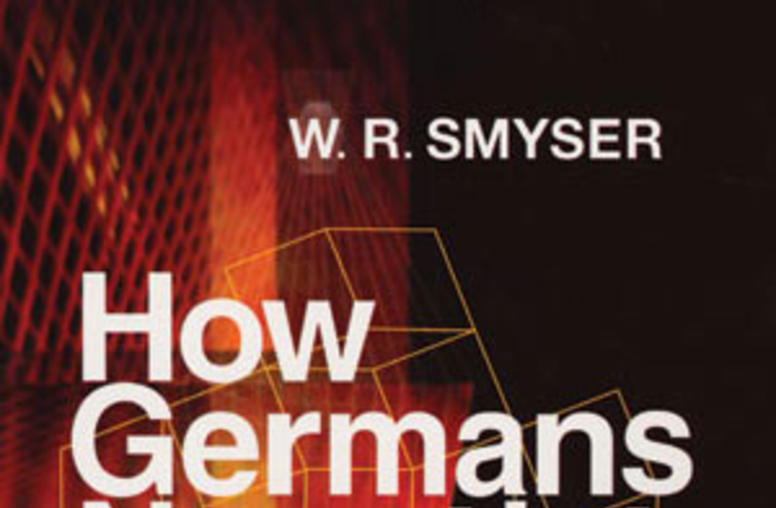
How Germans Negotiate
Drawing on interviews with dozens of European and American negotiators, How Germans Negotiate explores the roots of contemporary German negotiating behavior and identifies the stages through which negotiations typically pass. Using examples drawn from the past 50 years, Smyser illustrates Germany's abiding search for security, stability, and community.
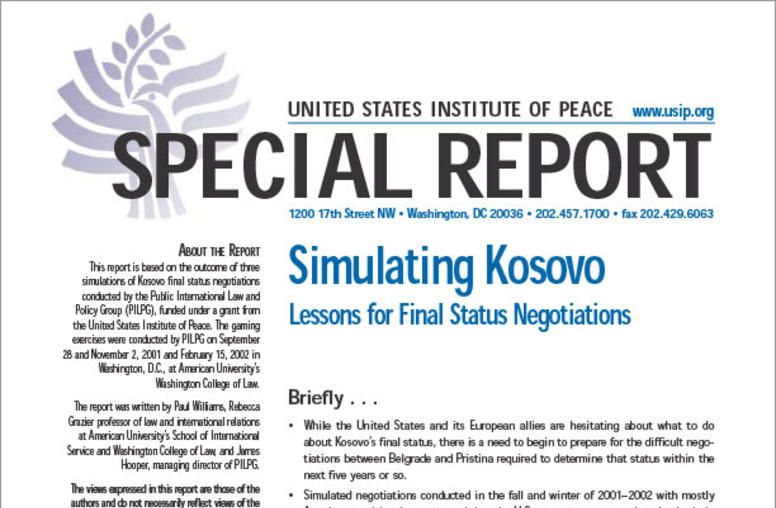
Simulating Kosovo: Lessons for Final Status Negotiations
This report is based on the outcome of three simulations of Kosovo final status negotiations conducted by the Public International Law and Policy Group (PILPG).
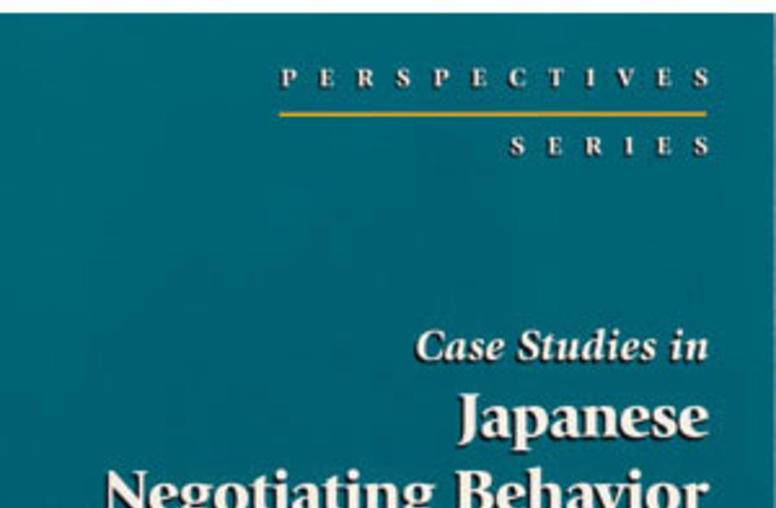
Case Studies in Japanese Negotiating Behavior
This volume explores four recent U.S.–Japanese negotiations—two over trade, two over security-related issues—looking for patterns in Japan’s approach and behavior.
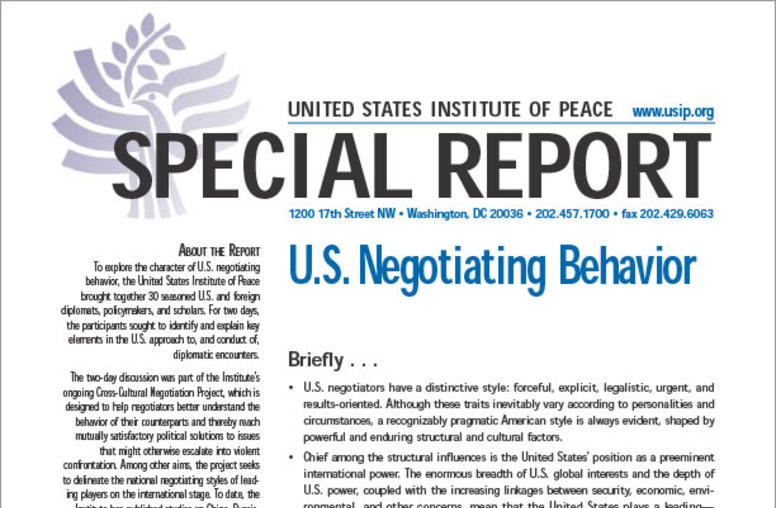
U.S. Negotiating Behavior
Summary U.S. negotiators have a distinctive style: forceful, explicit, legalistic, urgent, and results-oriented. Although these traits inevitably vary according to personalities and circumstances, a recognizably pragmatic American style is always evident, shaped by powerful and enduring structural and cultural factors.
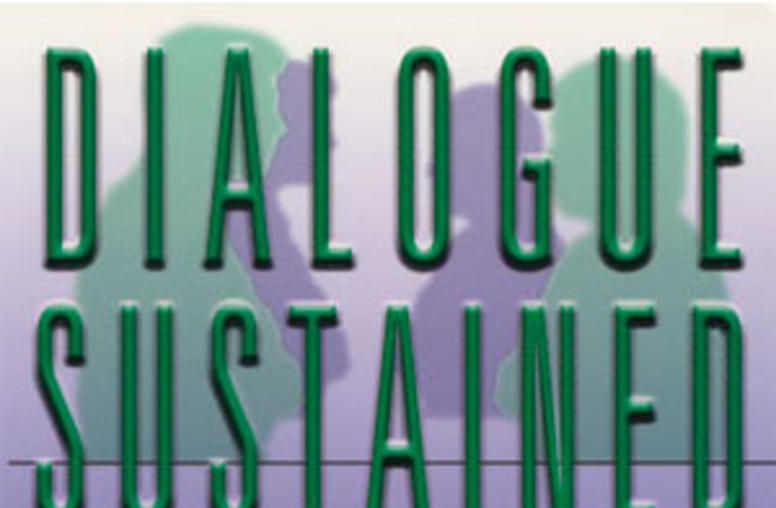
Dialogue Sustained
The participants in the Dartmouth Conference-so named because the first meeting took place at Dartmouth College in 1960-didn't just open up a new level of East-West understanding, they also pioneered a new kind of dialogue between adversaries. They were not government officials, yet their aim was somehow to narrow the divide between the Soviet and American governments-and indeed their peoples.
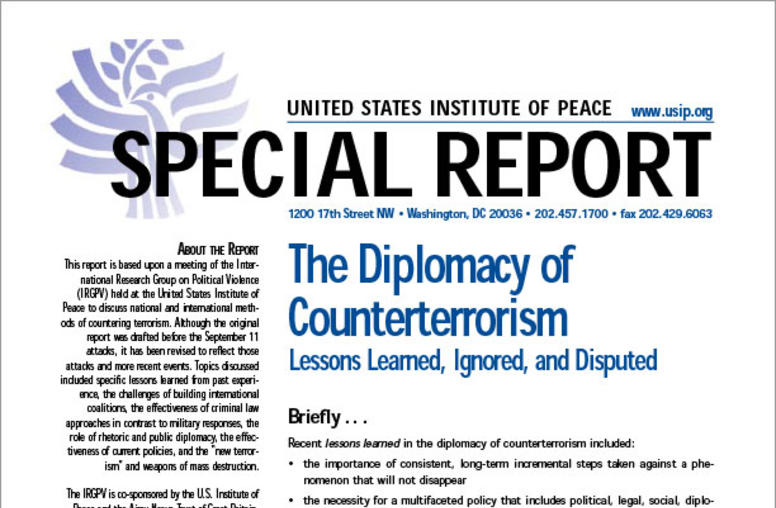
The Diplomacy of Counterterrorism: Lessons Learned, Ignored, and Disputed
Summary Recent lessons learned in the diplomacy of counterterrorism included: the importance of consistent, long-term incremental steps taken against a phenomenon that will not disappear the necessity for a multifaceted policy that includes political, legal, social, diplomatic, economic, and military elements the need to develop realistic expectations and avoid a crisis mentality that is ultimately satisfying to terrorists, playing down military analogies that might lead to pub...
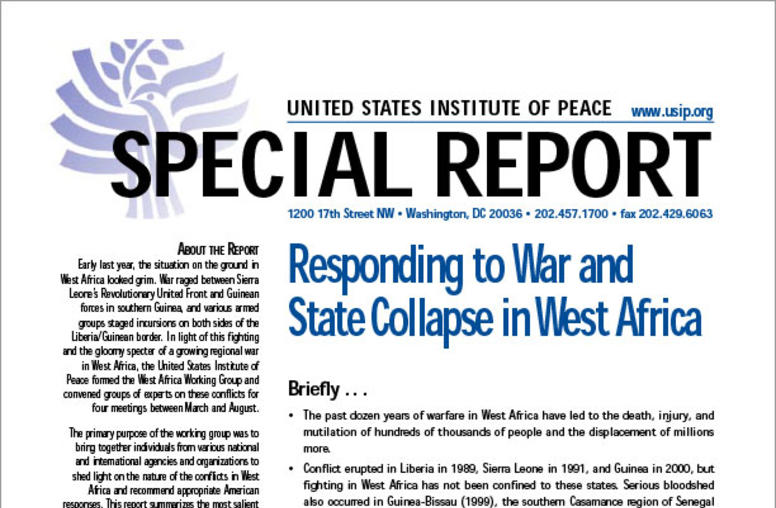
Responding to War and State Collapse in West Africa
Summary The past dozen years of warfare in West Africa have led to the death, injury, and mutilation of hundreds of thousands of people and the displacement of millions more.
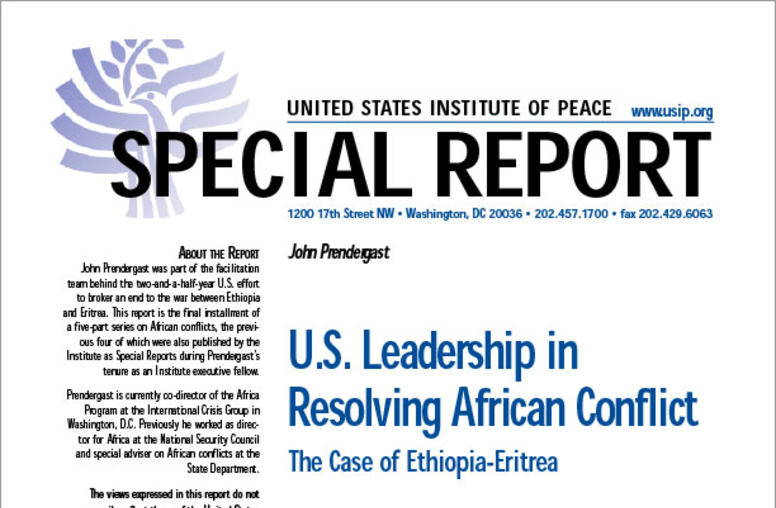
U.S. Leadership in Resolving African Conflict: The Case of Ethiopia-Eritrea
John Prendergast was part of the facilitation team behind the two-and-a-half-year U.S. effort to broker an end to the war between Ethiopia and Eritrea. This report is the final installment of a five-part series on African conflicts, the previous four of which were also published by the Institute as Special Reports during Prendergast's tenure as an Institute executive fellow.